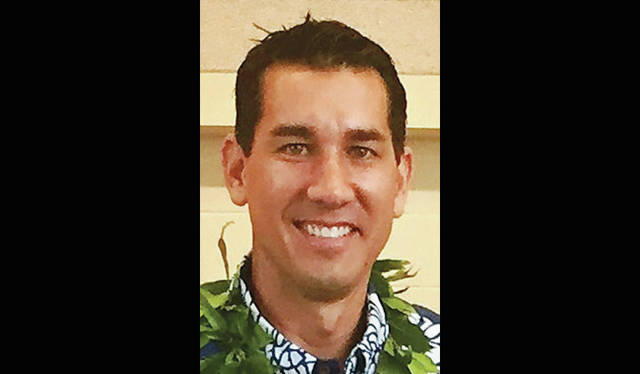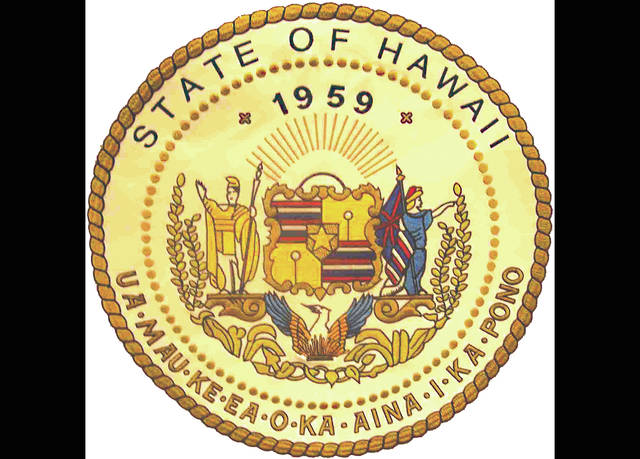‘This is not democracy’: Lawmakers slammed for skirting public input with telescope moratorium
As Hawaii waits to see if the Thirty Meter Telescope has a future here, a last-minute bill crafted in the state Legislature has many worried that lawmakers could end up forcing the next-generation observatory out of the state.
As Hawaii waits to see if the Thirty Meter Telescope has a future here, a last-minute bill crafted in the state Legislature has many worried that lawmakers could end up forcing the next-generation observatory out of the state.
The legislation would prohibit construction on Maunakea until the University of Hawaii receives a new master lease for the Maunakea Science Reserve, completes administrative rules, and conducts financial and performance audits. Critics say that would set TMT back by years, even if the state Supreme Court, which is overseeing two cases on the $1.4 billion project, rules in its favor.
ADVERTISING
The bill caught people off guard because it was introduced without notice through an often criticized process known as “gut and replace,” where the contents of one bill are replaced by another. While audit requirements were part of a bill that already failed this session, the proposed building moratorium had not been seen before.
TMT supporters worry that would be the final nail in the coffin for a project already looking to go elsewhere after years of delays because of protests and legal challenges. But they also are troubled by the process.
Unlike a separate “gut and replace” bill affecting management of Maunakea, this move was done without any public notice, preventing residents from weighing in.
The Senate Ways and Means Committee swapped and then adopted the language Wednesday, but the new version of House Bill 1585 — originally pertaining to funding staff positions at UH for capital improvement projects — wasn’t made public until Friday evening. A Senate vote is expected today.
“The public was never and will never be given a chance to comment on Part 2 of this bill,” said Thayne Currie, a Maunakea astronomer, in an email. “This is not democracy.”
Sen. Donovan Dela Cruz, an Oahu Democrat, is chairman of the committee; Hawaii Island Sens. Kai Kahele and Lorraine Inouye also sit on the committee and voted for the amendment.
The audit requirements were part of a bill Kahele introduced that died earlier this session. He said his language was inserted along with the moratorium by Dela Cruz.
“What this bill says is basically you need to get those things done that should have been done years ago,” said Kahele, D-Hilo, while defending the measure.
He dismissed concerns about a building moratorium undermining the judicial process or killing the TMT project, and pointed the finger back at UH.
“One should beg the question: We have 14 years left of a master lease, and we’re about to build a $1.4 billion project,” Kahele said.
UH’s lease for the science reserve ends in 2033.
The phone became disconnected when a reporter asked why no public notice was given. Kahele called back to say he was walking into a meeting but didn’t answer the question or call again by press time.
UH spokesman Dan Meisenzahl responded to Kahele’s criticisms by saying they lack context.
The university is drafting an environmental impact statement for its master lease renewal request, a process that was put on hold following protests against TMT on the mountain. He said an EIS is being done voluntarily.
Meisenzahl said UH is consulting with the Office of Hawaiian Affairs about proposed administrative rules — which could address issues such as commercial tours and vehicular access — and expects public hearings in August or September. Those were put on hold during the first TMT contested case hearing to avoid ex parte communication with the state Board of Land and Natural Resources. Gov. David Ige asked them to remain paused while a second contested case was held, he said.
The bill also requires UH to complete the remaining five action items in the Maunakea Comprehensive Management Plan before construction can proceed. Those address issues such as depositing of cremated remains and placement of offerings on the mountain, which some Hawaiians consider sacred.
Meisenzahl said those action items have been addressed by the Kahu Ku Mauna advisory committee but blamed the “current climate” surrounding Maunakea as the reason they haven’t been completed. UH anticipates the Office of Maunakea Management board taking up that issue this spring.
“We’re moving forward right now,” Meisenzahl said. “We don’t feel like there’s a need to put this project at risk. There’s no reason these things can’t continue to happen simultaneously.”
But should UH have secured a new master lease before seeking a permit for TMT?
“Maybe that’s a legitimate question today, but it’s too late to ask,” he said.
“… Hindsight is definitely something to learn from. But, right now, what do we do to move forward?”
Maunakea was selected as the proposed location for TMT in 2009.
Dela Cruz didn’t respond to a phone call requesting comment by press time.
Inouye, a Democrat representing North Hawaii, Waikoloa, Hamakua and parts of Hilo, said Monday she voted for the bill in committee because of the audit requirements, but didn’t know it was done through gut and replace.
Dela Cruz, Kahele and Inouye also are sponsors of Senate Bill 3090, which sought to create a new management authority for the mountain. After it died in the House, lawmakers in the Senate inserted the bill into another measure — HB 1985 — through a similar process. With that bill, notice of the change was given in advance. Kahele has championed the bill throughout the state and said he will represent the Senate if it is taken up in conference committee.
Inouye said she is against HB 1985 because she doesn’t like the gut-and-replace tactic.
If the Senate passes the moratorium bill today, it will be sent to the House, which can vote the bill up or down.
If voted down, it then goes to a conference committee to see if an agreement can be reached. Those meetings are handled by appointees from the House and Senate, with discussions often occurring behind closed doors. Any agreement reached in conference requires approval by both chambers.
Doug Simons, Canada-France-Hawaii Telescope director, said the bill will kill TMT if adopted, since the project has little room, if any, for more delays. But even if it doesn’t make it out of the Legislature, or gets vetoed by Ige, the bill is still sending the wrong message, he said.
“It’s mind-boggling,” Simons said. “I just don’t know what they are trying to accomplish.”
The legislation comes as TMT International Observatory, a California-based nonprofit that is trying to build the telescope, faces a self-imposed deadline this month for deciding whether to commit to Hawaii or move to Spain’s Canary Islands.
Simons said he expects the international partnership to put a decision on hold as they wait for the Supreme Court to once again decide on its land use permit, in addition to a sublease with the University of Hawaii.
In December 2015, the high court overturned the permit after finding the state Land Board violated project opponents’ due process rights by voting in favor before holding the first contested case hearing. That forced the project through a second contested case hearing that lasted for 44 days in Hilo.
The Land Board again approved the permit last year following the conclusion of the hearing. Contested case petitioners, who object to the project because they see Maunakea as sacred or overdeveloped, appealed. Separately, the state appealed a lower court ruling requiring a contested case for the sublease.
Simons said the Senate seems to be adding to due process concerns by inserting a building moratorium into the bill without public input.
“We all have to support whatever the court decides,” he said. “If it decides against TMT, we pick up the pieces and move forward one way or another. I did not anticipate a legislative gimmick basically short circuiting all of that.”
Bill Walter, Hawaii Island Chamber of Commerce president, said the actions taken with HB 1585 show why people don’t trust government. He also used the bill as an example as to why he thinks Hawaii doesn’t have a good reputation as a place to do business.
“Here is an organization that did everything the state told them to do,” he said, referring to the TIO, “even to the point of a second contested case. And, out of the blue, the Legislature says at this late hour, ‘Let’s kill it anyway.’ Really?”
Email Tom Callis at tcallis@hawaiitribune-herald.com.








